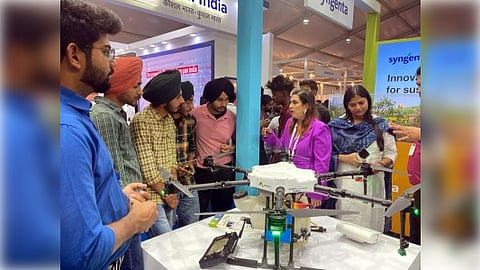Some of the topics covered included developing a framework for joint collaboration for the exchange of researchers and students, international research, data privacy, and other ethical concerns.
During the meeting, the delegates also emphasized gender equality and gender inclusion in the research arena, as well as improved grassroots participation in order to bridge the gap between academia, the private sector, and society.
Additionally, in the second and third sessions, the discussion centered around the use of blended learning to achieve foundational literacy and numeracy, the importance of teacher training to induce creativity in classroom teaching by designing learning materials, and the development of skill development frameworks.
Collaboration was again a key point of the session with discussions revolving around building partnerships with wider stakeholders, including industry, to create opportunities for vocational learning for students to bridge the skill gaps and imbalances across G20 nations.
Some of the sub-priority areas mentioned for joint action were to develop curriculum assessment and pedagogical practices and provide equal opportunities, and support to disadvantaged and indigenous communities.
The meeting concluded with remarks from the Alternate India chair, Atul Kumar Tiwari, Secretary, Ministry of Skill Development and Entrepreneurship, who emphasized that in order to achieve Sustainable Development Goal (SDG) 4 goal of "ensuring inclusive and equitable quality education and promoting lifelong learning opportunities for all, we must ensure that blended learning opportunities are accessible to all students".


